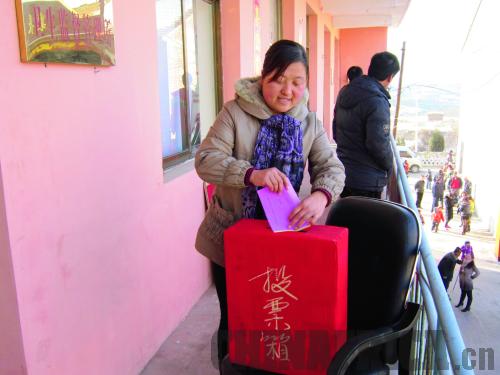|
 |
|
BALLOTING:Every villager's vote counts |
Evaluating candidates
When Song first took office in 2006, people thought he was too young for his position. Elders traditionally have acted as leaders, but Song at the time was just 30 years old.
Even now at 35, he still looks more like a young man than a leader, but his efforts in the past years have been acknowledged in Lichang. He now holds a university degree in agricultural management, and in this current election he is running unopposed.
According to the rules, voters can still vote for a candidate who hasn't claimed him- or herself as such. This means there is always a possibility of an unexpected competitor. But Song seems to have victory close at hand.
"There were some people who wanted to run for the position," he smiled shyly, "but they all gave up after they learned about villagers' strong support for me."
However, things are tougher for the chair of Hanwang Village, located near Lichang. A competitor has come forward, promising to build a coal washing plant that will provide employment to laid-off workers in Hanwang. It's a tempting platform.
Rural democracy has its own characteristics and rhythm, and few chairs end up serving longer than one term.
"Working as a leader, you cannot avoid offending people," posited Song. "Farmers embrace democracy, but they still have limited understanding. Sometimes they won't vote for you just because they don't like you personally." For Song, helping his fellow villagers understand electoral responsibility is important.
Zhao Dongqing, a member of Lichang's election committee, feels the situation is reflective of the reality on the ground. "Farmers focus on their personal benefit," he explained. "They value deeds more than words."
According to Zhao, villagers evaluate candidates over what they see in daily life. It's widely believed that a candidate is qualified to handle village matters only if he or she has handled their own affairs well.
Song mostly agreed with Zhao. "But," he said, "I think honesty weighs more."
|